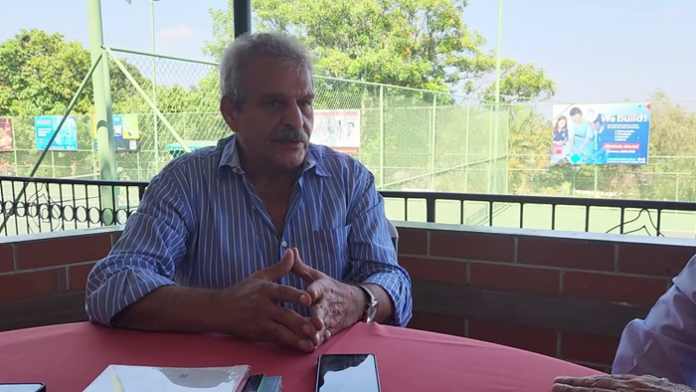Interviewer: Yousef M. Aljamal
Affiliation: Politics Today Researcher, Author, and Translator
Interviewee: Simán Khoury
Affiliation: Palestinian-Salvadorian, President of the Palestinian Federations in Latin America
Organization/Publisher: Politics Today
Date/Place: Dec 22, 2021/Turkey
Type of Literature: Interview
Word Count: 1825
Keywords: Palestine, Latin America, Levant, Immigration, Diaspora, Colombia, El Salvador, Brazil, and Chile
Brief:
In this interview made with the president of the Palestinian Federations in Latin America, Simán Khoury, he discusses the background of diaspora, integration process, and the current social, political, and economic situations of Palestinian-Latin American citizens. As many Palestinians who had to immigrate to other countries, the Palestinians arrived to Latin American countries with nothing other than the clothes they wore. Starting from the late 19th century, these immigrants from Levant and Greater Syria were called “Turcos” which means Turks, since they held Ottoman Passports. Given their lack of money and barefooted outlook, they were perceived as peasants by the locals. When immigration started—five-six generations back—Palestinians thought they were going to North America since they had no distinction of South, North or Central America; however, upon arrival in Puerto Colombia, Colombia, and Cuba they divided, some going to Chile and some went to El Salvador. Today, Chile has half a million Palestinians—mainly Christians—who immigrated from Bethlehem; there are 200,000 Palestinians in Honduras and 120,000 in El Salvador. The first Palestinian immigrants suffered from extreme poverty, and their working as street vendors caused marginalization. However, they managed to become shop owners and workers in factories. While their economic situations improved gradually, so also their social status. Given the current positions of Palestinians and Arabs in general, their significance in the society -especially in Colombia- cannot be overlooked. Palestinians are responsible for 44% of production in both industrial and trade sectors in El Salvador, although they comprise only 1.5% (120,000) of the population. They also contribute to medical labs and the healthcare system. In Honduras’ 2005 Presidential Election, both right and left wings candidates were of Palestinian origin. Similarly in 2009 municipal elections, Salvadorian Palestinian candidate Nayib Bukele became the mayor, a stepping-stone to now being President of El Salvador. Recently, the younger generations have maintained ties with their roots, as they send humanitarian aid for their countrymen. Through various activities there is a strong sense of support developed for the Palestinian cause with the help of 7 million Lebanese Palestinians in Brazil. Having strong activism and political support resulted in the Israeli Embassy in El Salvador closing in 2017. There are 12 Palestinian-origin parliamentarians in Chile who support the cause, however, Simán suggests that they haven’t been supported enough by neither the PLO (Palestine Liberation Organisation) nor the Palestinian Government, such that larger Palestinian communities located in Panama and the businesses they hold cannot be heard. Regarding support for the Palestinian cause and ending the illegal Israeli Occupation, there have been demonstrations in which the Palestine Embassy in Colombia remained uninvolved. Simán suggests that the Palestinian lobby in Latin America advocates the cause by all means, lobbying, eating the traditional foods, wearing traditional clothes and maintaining the vividness of the cultural heritage, so that diplomatic and legal aspects of the cause make Embassies advocate against occupying powers. The Palestinian cause is just and legitimate, but the Palestinian Authority must work harder with its diaspora community.
By: Cemile Cengiz, CIGA Research Assistant




